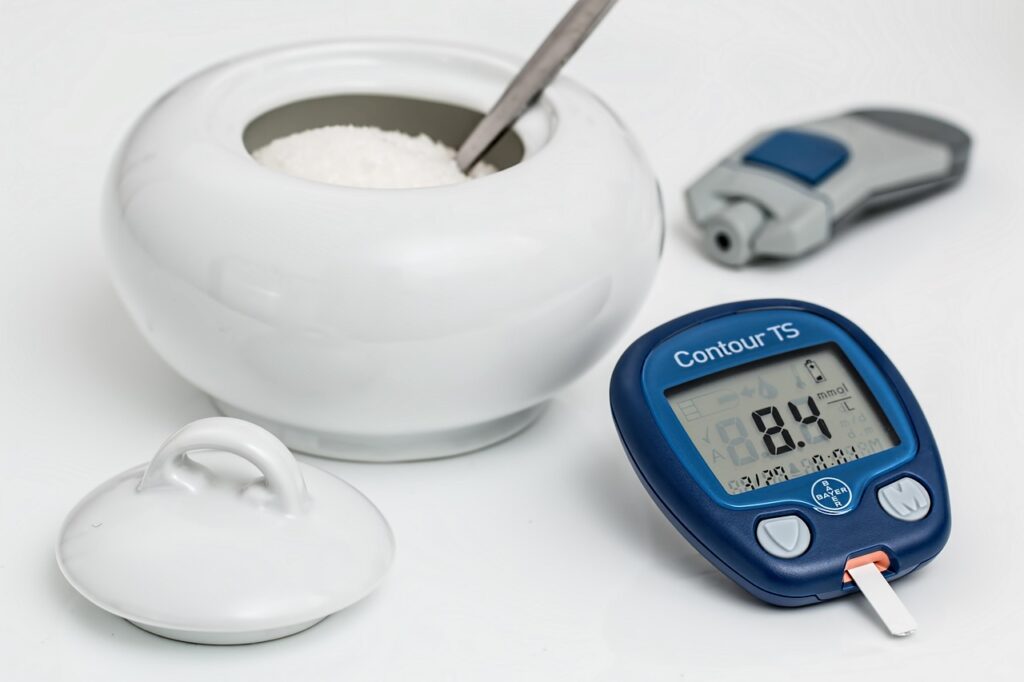You may be surprised to learn that metformin, one of the most talked-about medications for weight loss and insulin resistance, has roots in a humble flowering plant.
Originally derived from Galega officinalis—also known as French lilac or goat’s rue—this plant was once used in traditional herbal medicine to treat symptoms we now associate with diabetes.
While modern metformin is synthetically produced, its natural origins add an interesting twist to a medication now used by millions.
Today, metformin is best known for managing blood sugar in type 2 diabetes, but it’s also gaining popularity for a different reason: its use in weight loss. While not FDA-approved specifically for shedding pounds, research and personal stories alike suggest that metformin may help people lose weight—especially those dealing with insulin resistance, prediabetes, or PCOS.
In this blog, we’ll explore how metformin supports weight loss, how much to take, the benefits and side effects, and how much weight you can lose on metformin realistically.
JUMP TO…
What Is Metformin and How Does It Promote Weight Loss?
How Much Weight Can You Lose on Metformin?
Metformin for Weight Loss Dose: What’s Typical?
Use of Metformin for Weight Loss in PCOS
What Are the Side Effects of Metformin for Weight Loss?
Who Might Benefit Most from Metformin for Weight Loss?
Is Metformin Right for You?
What Is Metformin and How Does It Promote Weight Loss?
Originally developed to help people manage blood sugar levels, metformin works by reducing the amount of glucose your liver releases and by making your body’s cells more responsive to insulin.

In people with insulin resistance, such as those with prediabetes or polycystic ovary syndrome (PCOS), this can significantly improve how the body handles sugar and stores fat. Over time, this metabolic rebalancing can contribute to weight loss.
In addition to its effects on blood sugar, metformin is also believed to influence appetite regulation. It increases levels of a hormone called GDF-15, which can suppress appetite and promote feelings of fullness. Many users report that their cravings—especially for carbohydrates or sweets—decrease significantly after starting metformin.
Others find they feel full sooner and are naturally inclined to eat less. These effects, when combined with improved metabolic health, may explain the benefits of metformin for weight loss that are being reported more frequently in both clinical settings and personal testimonials.
How Much Weight Can You Lose on Metformin?
One of the most commonly asked questions is: how much weight can you lose on metformin?

The answer varies based on individual health factors, but research shows that most people lose between 5 to 10 pounds over a period of several months. This equates to roughly 2–3% of their starting body weight. In people with insulin resistance or PCOS, the weight loss may be slightly more pronounced—some studies show an average reduction of up to 9 pounds over the course of a year.
It’s important to note that weight loss with metformin tends to be gradual. Additionally, something else to note is its affordable and safe – generic forms cost roughly $10–$30 per month .
Unlike stimulant-based weight loss medications or GLP-1 receptor agonists like semaglutide, the changes with metformin happen slowly and often subtly. However, these changes can be more sustainable in the long run when combined with healthy habits like mindful eating and regular physical activity.
Metformin for Weight Loss Dose: What’s Typical?
When it comes to how much metformin for weight loss, the dosing approach is usually gradual to minimize side effects.
Most people start with a low dose—typically 500 mg once daily—with food to reduce gastrointestinal discomfort.

Over time, the dose may be increased every one to two weeks until the desired therapeutic effect is achieved. The effective metformin for weight loss dose is generally in the range of 1,500 to 2,500 mg per day, taken in divided doses or as an extended-release (ER) tablet.
Extended-release metformin is often preferred for those using it for weight management, as it tends to be better tolerated and reduces the chances of digestive upset. It’s important to follow a doctor’s guidance closely when titrating the dose, and to avoid exceeding the recommended maximum, which is typically 2,500 mg per day in adults.
Use of Metformin for Weight Loss in PCOS
Metformin has long been used off-label for women with PCOS—a condition characterized by hormonal imbalances, irregular menstrual cycles, and insulin resistance.
For many women with PCOS, weight gain is both a symptom and a complicating factor. The use of metformin for weight loss in PCOS is particularly compelling because it not only helps shed excess pounds but also addresses underlying hormonal and metabolic issues.
So, what does metformin do for PCOS?
It helps lower insulin levels, which in turn can reduce the production of androgens (male hormones) that contribute to symptoms like acne, hair growth, and menstrual irregularity.
Many women find that metformin improves their cycle regularity and increases the likelihood of ovulation—both of which can support fertility. When combined with a healthy diet and exercise, metformin can also help improve cholesterol levels and reduce the risk of developing type 2 diabetes.
For women with PCOS, typical doses used for weight loss and hormone regulation mirror those used in type 2 diabetes management—again, in the range of 1,500 to 2,500 mg per day.
What Are the Side Effects of Metformin for Weight Loss?
While metformin is generally considered safe and has a long history of use, it’s not without potential downsides.
The most commonly reported metformin for weight loss side effects involve the digestive system. These include bloating, gas, nausea, stomach cramps, and diarrhea—especially in the first few weeks of treatment or if the dose is increased too quickly. Fortunately, most people find that these side effects lessen or disappear entirely as their bodies adjust to the medication.

To improve tolerability, it’s advised to take metformin with meals and to start with a low dose, increasing gradually as recommended by your provider. Choosing the extended-release version can also help reduce gastrointestinal symptoms.
A less common side effect is vitamin B12 deficiency, which may develop with long-term use of metformin. It’s a good idea to have your B12 levels checked periodically, especially if you begin experiencing symptoms like fatigue, tingling in the hands or feet, or brain fog.
The most serious potential risk—though extremely rare—is lactic acidosis, a condition that involves a buildup of lactic acid in the blood. This is primarily a concern in people with kidney or liver impairment. That’s why healthcare providers often monitor kidney function before and during metformin use.
Who Might Benefit Most from Metformin for Weight Loss?
Not everyone will respond to metformin in the same way, but those who may benefit most tend to fall into one or more of these categories:
- Individuals with prediabetes or insulin resistance
- Women with PCOS, especially those with irregular periods and weight gain
- People already struggling with blood sugar issues or early metabolic syndrome
- Individuals looking for a low-cost, long-term weight management option with few serious risks
It’s important to remember that metformin is not a substitute for healthy lifestyle choices. While it may reduce appetite and support better metabolic health, it works best in combination with dietary changes and physical activity.
Is Metformin Right for You?
If you’re considering trying metformin to lose weight, talk to your healthcare provider about your goals, medical history, and current lab work. They can help determine whether you’re a good candidate, calculate an appropriate starting dose, and monitor your progress.
You should not use metformin if you have severe kidney disease, liver issues, or a history of lactic acidosis. Women who are pregnant or breastfeeding should also avoid it unless specifically prescribed for gestational diabetes or PCOS-related concerns.
For everyone else, it’s a well-studied medication with a strong safety record—especially when used as prescribed.
Final Thoughts: A Slow and Steady Tool in the Weight Loss Toolbox
In a world where many weight loss products promise rapid transformation, metformin stands out for its more subtle, science-based approach.
It doesn’t cause dramatic drops on the scale, but it may help tip the metabolic scales in your favor, especially if you’re struggling with insulin resistance or PCOS. By curbing appetite, improving glucose metabolism, and supporting hormonal balance, metformin can play a valuable role in a broader wellness strategy.
To recap:
How much weight can you lose on metformin? Most people experience a modest 5–10 pound reduction, particularly when the metformin for weight loss dose is optimized and paired with healthy habits. It’s not a quick fix, but for many, it’s a safe and effective tool worth considering.
If you’re curious about how to integrate metformin into your health routine, be sure to consult with a knowledgeable healthcare provider. Together, you can decide if this tried-and-true medication deserves a place in your personalized plan for lasting weight management.

